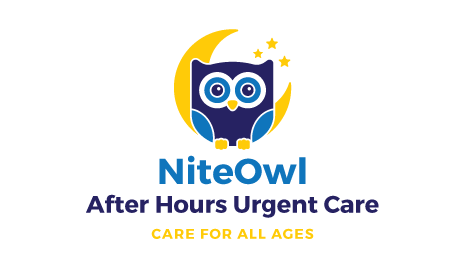Sickness and the winter months always seem to go hand-in-hand, but there are precautions your family can take to avoid sharing a nasty bug. This month’s blog covers the 2019 recommendations for flu prevention, as well as treatments if catching the flu becomes unavoidable.
Take Precautions to Avoid Getting the Flu
2019 Flu Season Hitting Chattanooga Kids Hard
According to the Centers for Disease Control and Prevention (CDC), influenza A(H3N2) viruses have been most common in the Southeast, including Georgia and Tennessee. The average duration of a flu season varies, but CDC expects elevated activity will continue for about 16 weeks.
With significant flu still to come this season, the CDC continues to recommend that anyone who has not yet gotten a flu vaccine this season should get vaccinated now. It takes approximately two weeks for the protection provided by vaccination to begin. Since this H1N1 virus emerged in 2009, it has been associated with significant illness and severe illness among young children. At this point, most flu activity has been driven by illness in school-aged children, and hospitalization rates among children younger than 5 years old (7.7 per 100,000) are now the highest among all age groups. Seven pediatric deaths have been reported to CDC so far this season. Seven deaths reported to CDC this season have been associated with a mix of H1N1, H3N2 and influenza B virus infections." —December notice from the Centers for Disease Control and Prevention
How to Recognize Flu Symptoms in Children
Flu often comes on quickly, and while most people recover within a few days to a couple of weeks, others develop life-threatening complications like pneumonia. Sinus and ear infections may result from the flu virus.
The Flu may include symptoms such as fever, feeling feverish/chills, cough, sore throat, runny nose, stuffy nose, muscle or body aches, headaches, and fatigue. Children more commonly than adults suffer vomiting and diarrhea from the flu. Kids may also become irritable, experience a rash with their fever, have trouble breathing or breathe faster than usual, not wake up normally, not drink enough fluids, and develop a bluish skin color, according to the CDC.
Parents should seek immediate medical help if an infant has no tears when crying and fewer wet diapers than normal.
How to Tell the Difference Between a Cold and the Flu
Flu and the common cold are both respiratory illnesses, but they are caused by different viruses.
While symptoms are similar, colds are usually milder with more of a runny or stuffy nose that starts gradually rather than appearing abruptly. Muscle or body aches happen more with the flu than a cold.
It’s really impossible to tell which illness is at work based on symptoms alone. NiteOwl Pediatrics offers flu testing lab services to diagnose the condition for those who need our after-hours pediatric urgent care in Chattanooga Tennessee.
How to Avoid Getting the Flu
Get Vaccinated to Prevent the Seasonal Flu
The CDC recommends annual influenza vaccination for everyone 6 months and older with any licensed, age-appropriate flu vaccine (IIV, RIV4, or LAIV4), ideally by the end of October. Vaccination has been shown to reduce the risk of hospitalizations or flu-related deaths in children. Flu vaccines are offered in many doctor’s offices, clinics, health departments, pharmacies, and college health centers, as well as by many employers, and even in some schools.
Some people who get vaccinated may still get sick. However, flu vaccination has been shown in some studies to reduce the severity of illness in people who get vaccinated but still get sick. The viruses in the flu shot are killed (inactivated), so you cannot get the flu from a flu shot. Different side effects may be associated with getting a flu shot or a nasal spray flu vaccine. These side effects are mild and short-lasting, especially when compared to symptoms of a bad case of flu.
Other actions to Stop the Spread of Germs
While vaccination is ideal, you may take other preventive actions such as:
- Limit Contact with Others as Much as Possible to avoid infecting them with the contagious virus.
- Stay Home for at least 24 hours after a fever is gone except to get medical care or necessities.
- Cover the nose and mouth with a tissue with coughing or sneezing, then throw it in the trash and wash your hands.
- Wash hands often with soap and water or use an alcohol-based hand rub.
- Avoid touching the eyes, nose and mouth.
- Clean and disinfect surfaces and objects that may be contaminated with germs.
- Wash hands after touching a sick child or handling their tissues or laundry.
How to Treat the Flu
If the horse is already out of the barn, so to speak, there are some treatments available. These include: • Antiviral Prescription Drugs (Tamiflu, Relenza, Rapivab, or Xofluza are four trade-named antiviral drugs approved by the FDA) taken within 48 hours of symptoms to make the illness milder and shorten the length of sick time. • Some over-the-counter products may lessen symptoms while the immune system fights the germs. • Drink plenty of water and other clear liquids to prevent dehydration. • Get rest, as sleep is critical to a healthy immune system.
For more information on the Flu and recommendations for parents, read the CDC’s guide for parents.
When in Doubt, Get the Kids Checked Out
NiteOwl Pediatrics stands ready 7 days a week from 5-11 pm on weeknights and 3-11 pm on weekends to help Chattanooga area parents treat their children when flu symptoms happen. We are located at 7320 Shallowford Road Suite B in Chattanooga TN 37421 (next to Zaxby’s near Hamilton Place Mall). For best results, we recommend pre-registering with online check-in.
Photo: © Nagy-Bagoly Ilona/123RF Stock Photo
Blog © 2019 NiteOwl Pediatrics 7320 Shallowford Road Suite B, Chattanooga TN 37421

